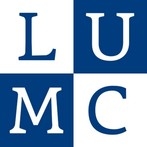From virus to lung cell, from drug to patient
Respiratory viruses are a major cause of upper and lower respiratory tract infections, leading to significant morbidity and mortality in humans. Leiden University Medical Center (LUMC) and Janssen Pharmaceutical collaborate in this project to explore the effect of current and novel antiviral therapy in physiologically-relevant models to improve translational output, advance predictive validity in diagnostics and increase the chance of success in later clinical trials. Also, this project aims to uncover unique pathways in the pathophysiology of viral infections of the respiratory tree and expand the current scientific knowledge in the field of repair and regeneration of the bronchial epithelium.
These goals require a validated model of viral infection in human pulmonary bronchial epithelial cells (HPBEC) growing in air liquid conditions. Development of this model will be guided by aiming for scalability as primary cells are limited in supply. Furthermore, precision of the model will be assessed as the phenotype of HPBECs should be independent of experimental set-up. Finally, gene-editing tools (ZNF, CRISPR-Cas9, CRISPRi/a and RNAi) will be used to generate a stable, immortalized HPBEC line. The validated model of viral infection in HPBEC will accelerate the discovery of novel pathways and the development of innovative therapies.
in human pulmonary bronchial epithelial cells (HPBEC) growing in air liquid conditions. Development of this model will be guided by aiming for scalability as primary cells are limited in supply. Furthermore, precision of the model will be assessed as the phenotype of HPBECs should be independent of experimental set-up. Finally, gene-editing tools (ZNF, CRISPR-Cas9, CRISPRi/a and RNAi) will be used to generate a stable, immortalized HPBEC line. The validated model of viral infection in HPBEC will accelerate the discovery of novel pathways and the development of innovative therapies.


